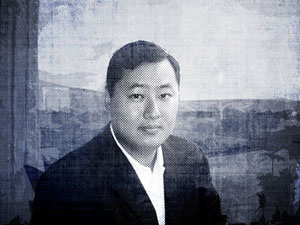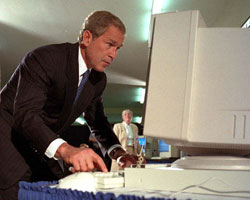When Office of Professional Responsibility’s long-awaited report on the torture memos was released last week, it noted that the nearly 5-year investigation had not been “routine.” The inquiry was hampered by a number of factors, including an “unprecedented” case load, but the most eyebrow raising impediment was this:
OLC initially provided us with a relatively small number of emails, files, and draft documents. After it became apparent, during the course of our review, that relevant documents were missing, we requested and were given direct access to the email and computer records of [REDACTED], Yoo, Philbin, [Assistant Attorney General Jay] Bybee, and [Assistant Attorney General Jack] Goldsmith. However, we were told that most of Yoo’s email records had been deleted and were not recoverable. Philbin’s email records from July 2002 through August 5, 2002—the time period in which the Bybee Memo was completed and the Classified Bybee Memo…was created—had also been deleted and were reportedly not recoverable.
On Thursday, Citizens for Responsibility and Ethics in Washington (CREW) requested that Attorney General Eric Holder launch in investigation into the deleted emails. CREW notes that at the very least the destruction of the emails flouts the Federal Records Act (FRA). But if the emails were deep-sixed intentionally, CREW says, there may be criminal implications.
In a statement, CREW executive director Melanie Sloan said:
Given the disappearance of millions of Bush White House emails, we shouldn’t be surprised that crucial emails also disappeared from the Bush Justice Department. The question now is what is the Attorney General going to do about it? Even if Mr. Yoo and Mr. Philbin did not violate their professional obligations by writing the torture memos, they—or others seeking to hide the truth—may have broken the law by deleting their emails.















